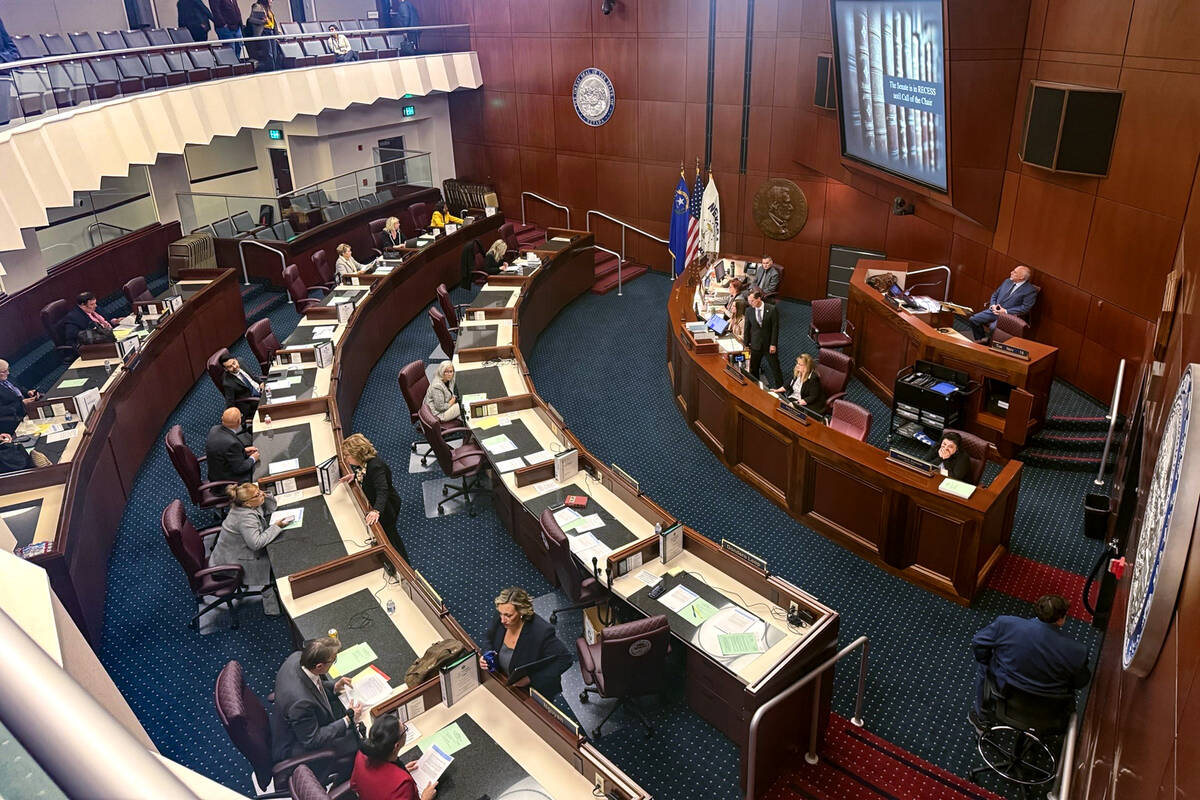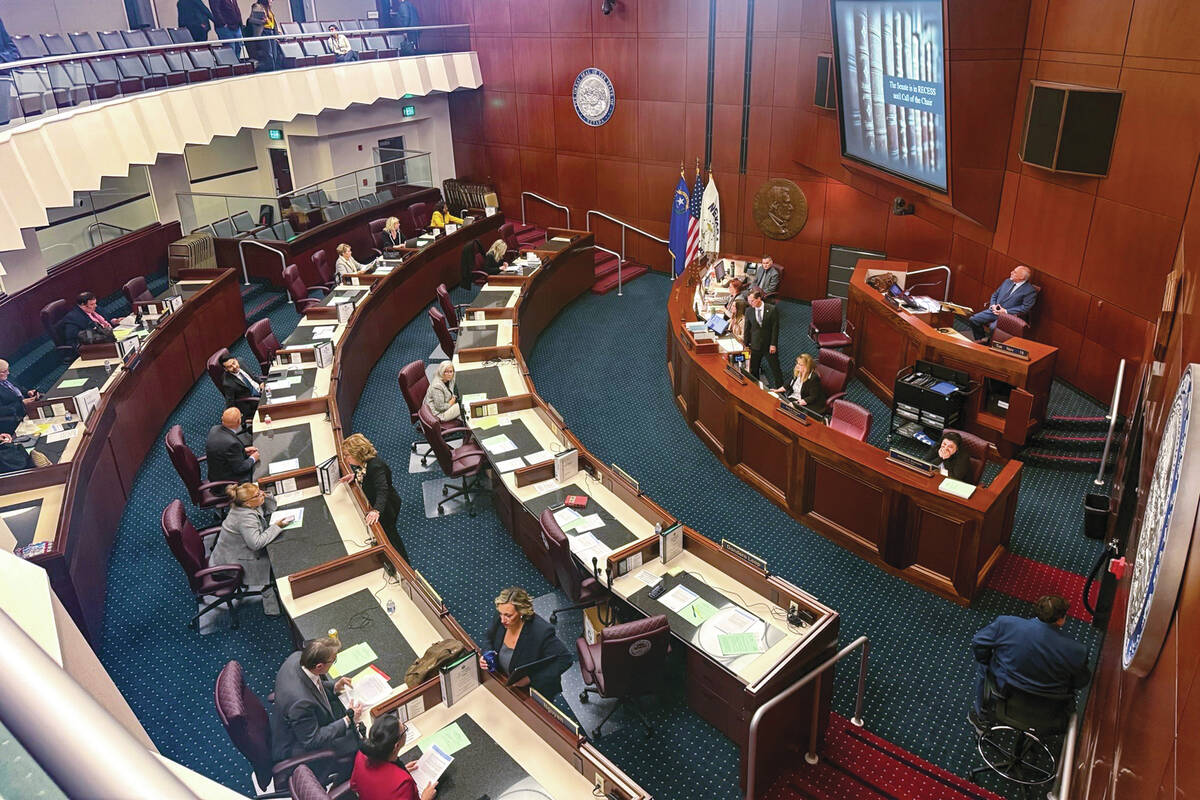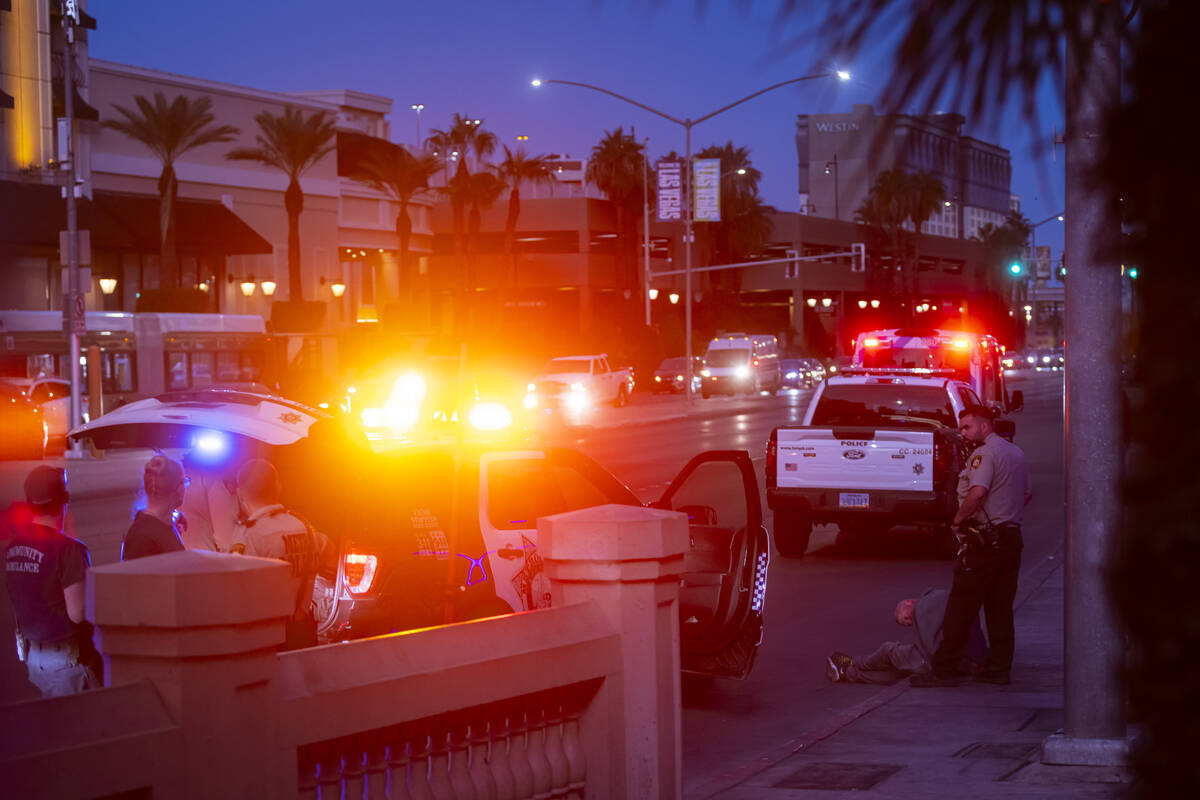Crime bill passes Nevada Senate; amendment targets ICE enforcement at schools
CARSON CITY — An expansive crime bill backed by Gov. Joe Lombardo was passed by lawmakers Wednesday and sent to the governor’s desk with a last-minute amendment addressing immigration enforcement.
Assembly Bill 4 was one of the two most talked about pieces of legislation considered in the lengthy special session agenda. It proposes modifications to over a dozen areas of Nevada’s criminal code and could prompt the return of a controversial court program that led to judges banning criminal defendants from the Strip.
A new amendment added to the bill makes it illegal for school employees to allow federal immigration officials onto school grounds or disclose a student’s information to immigration agents without a warrant. Gov. Joe Lombardo vetoed a bill with similar legislation during the regular session.
The entire crime bill passed out of the Senate with a 16-2 vote early Wednesday morning. Three lawmakers were absent, and the two senators who voted no were Dina Neal, D-North Las Vegas, and James Ohrenschall, D-Las Vegas.
However, the Senate asked for the bill to be returned in order to add an amendment clarifying that the legislation would not ban local law enforcement from schools. The clarifying amendment was again put to a vote Wednesday night, and passed with the same totals.
The Assembly concurred on the amendment Wednesday night, sending the bill to the governor’s desk.
.
Needed to address immigration enforcement, advocates say
Sen. Melanie Scheible, D-Las Vegas, said the amendment would help protect students and their families from immigration enforcement on school grounds.
“The purpose of the amendment is definitely to address some concerns we had about immigration enforcement here in Nevada,” Scheible said.
The amendment comes after civil rights advocates and progressive groups criticized the legislation earlier in the special session for not having sections addressing immigration enforcement. Assemblymember Cinthia Moore, D-Las Vegas, said last week that not including immigration measures was a “missed opportunity,” and was a major reason why she did not support the bill.
In addition to restricting immigration enforcement at schools, the amendment introduced Wednesday would require detention facilities to maintain a list of everyone held at that facility, and to make that information publicly available.
Opponents of the crime bill have also questioned why legislators are debating increasing criminal penalties when statistics show crime rates have been falling across the state.
The bill was passed out of the Assembly during the regular session earlier this year but died when the Senate ran out of time to hear the measure. Gov. Joe Lombardo, the former Clark County Sheriff, has long backed the bill — also known as the Safe Streets and Neighborhoods Act. Proponents say the bill, which is almost identical to the legislation proposed in the regular session, creates criminal justice reform and targets repeat offenders.
Other major changes proposed by the crime bill include enhanced penalties for DUI offenses resulting in death and assaults against hospitality workers, limits on automatically sealing the records of people accused of child abuse, a new felony charge for burglaries involving property damage and expanded definitions of stalking and domestic violence. It could also prompt the return of a controversial court program in Las Vegas that has coincided with judges banning criminal defendants from the Strip in increasing numbers.
Sen. James Ohrenschall, D-Las Vegas, spoke in opposition of the bill when it was put to another vote Wednesday night.
“I am concerned that longer prison sentences in the bill will not lead to reduced crime,” he said. “I believe that the evidence shows that this approach does not work and ends up negatively impacting marginalized communities disproportionately.”
Resort Corridor
The bill would require Clark County to designate a “resort corridor” where crime poses a risk to public safety and the economic development of the state. Crimes committed in the corridor could result in a criminal defendant being banned from the area for up to a year, and the bill requires judges to ban defendants for at least a year for a repeat offense.
Legislators are stopping short of mandating the return of the Resort Corridor Court, a controversial program in operation for nearly two years in Las Vegas Justice Court. Judges elected to end the court program in late 2024, in part due to concerns over its sustainability and resources available for defendants.
The legislation instead affirms that judges may create a court program to address crime in the resort corridor.
Lawmakers early Wednesday introduced another piece of legislation, Senate Bill 9, that contains the same provisions about the resort corridor. The legislation was immediately tabled, but could apparently be revived depending on the outcome of the crime bill.
Justice of the Peace Jessica Goodey, vice president of the Nevada Judges of Limited Jurisdiction, raised concerns in neutral testimony during an Assembly committee hearing last week that the legislation could infringe on separation of powers, because the Legislature would be ordering the judiciary to report on crime data from the corridor.
A Las Vegas Review-Journal analysis of court data showed that the majority of cases involving “order-out orders” banning defendants from the Strip were for trespassing offenses.
Virginia Valentine, the president of the Nevada Resort Association, has said the order-out orders are necessary due to people who have been told to leave casinos dozens or hundreds of times.
“The number of cases seen by the court pales in comparison to what hotel security sees,” she told a Senate committee on Sunday.
Proponents of the bill have also pointed to measures meant to increase penalties for attacking hospitality workers. Sen. Fabian Doñate, D-Las Vegas, whose district covers the Strip, said Tuesday that he views the Resort Corridor Court from a “workers safety perspective.”
“Anything that can enhance protections and make the Vegas experience more pleasant I think is a win for the whole entire state,” he said.
Meanwhile, opponents have continued to criticize the court program as an “experiment” that benefited the gaming industry. Nick Shepack, the Nevada director of the Fines and Fees Justice Center, said it was a “revolving door of incarceration” for homeless people.
Athar Haseebullah, the executive director of the American Civil Liberties Union of Nevada, said in a statement Wednesday that the resort corridor sections of the crime bill will lead to “even more corporate influence within our judicial system.”
“For a variety of reasons, this bill still belongs in a trash can,” he said.
Contact Katelyn Newberg at knewberg@reviewjournal.com or 702-383-0240.




















